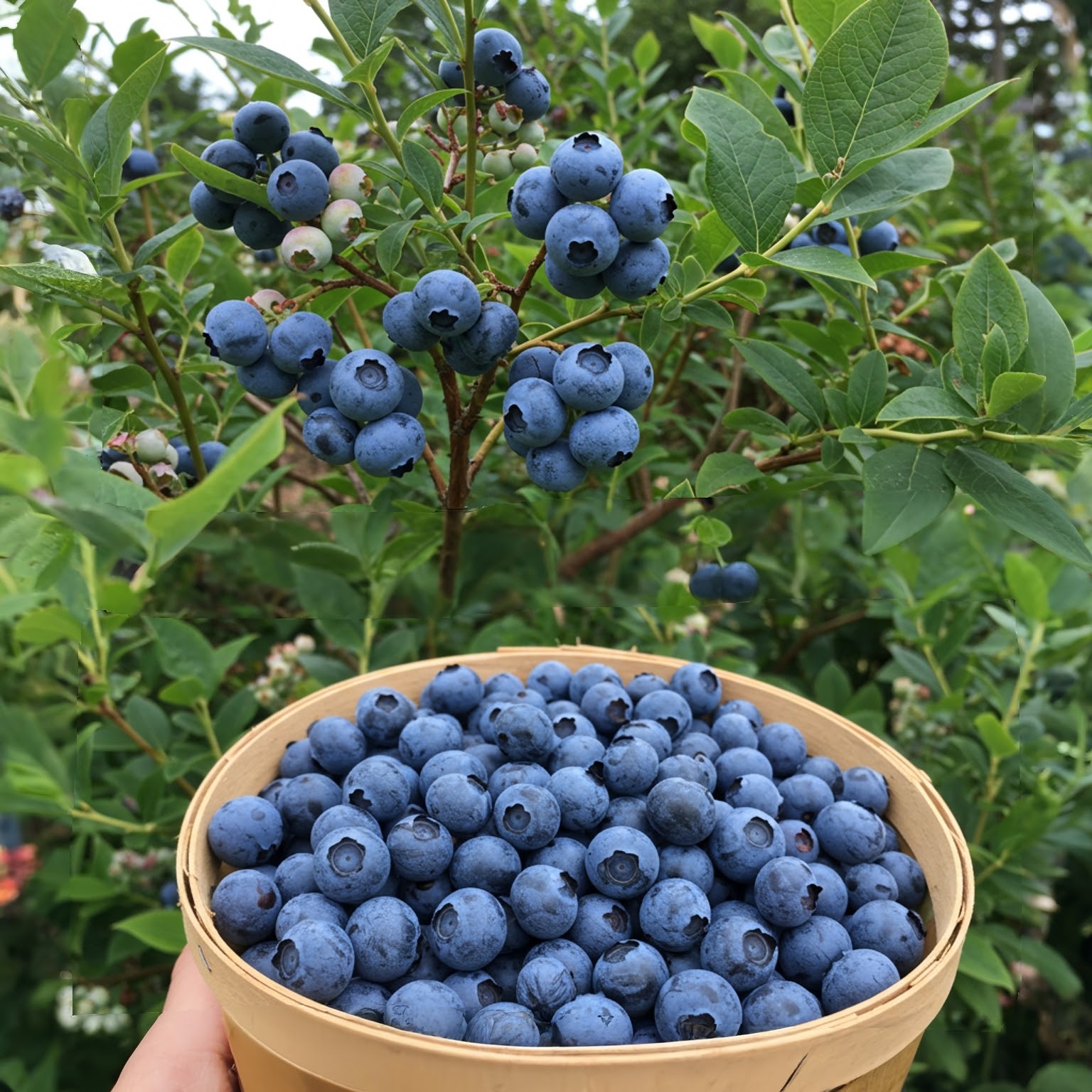ADVERTISEMENT
💧 Watering and Feeding
- Water consistently—especially during fruiting. Blueberries need about 1–2 inches of water per week.
- Use an acid-specific fertilizer, such as those designed for azaleas or rhododendrons.
- Avoid over-fertilizing, especially in the first year. Too much nitrogen can delay fruiting.
✂️ Pruning for Productivity
- Year 1: Don’t let the plant fruit. Pinch off blossoms to allow root development.
- Year 2 and beyond: Prune annually in late winter to remove weak or damaged branches and promote airflow.
🪴 Growing Blueberries in Containers
If space is limited or your soil is alkaline, blueberries thrive in containers!
- Use large pots (at least 18 inches wide and deep).
- Fill with acidic potting mix designed for acid-loving plants.
- Choose compact varieties like ‘Top Hat’ or ‘Sunshine Blue.’
- Keep containers in full sun and water consistently.
🧺 Harvesting Your Blueberries
- Berries are ready when they turn a deep blue and come off easily.
- Don’t rush—berries that look ripe may still need a few days to sweeten.
- Pick every few days to keep your plant producing.
🫐 Storage Tips
- Fresh: Keep in the fridge for up to 2 weeks.
- Frozen: Wash and freeze on a baking sheet, then transfer to freezer bags.
- Preserved: Make jams, sauces, or dried snacks to enjoy year-round.
🏆 Final Thoughts
Planting blueberries at home is a rewarding experience that pays off year after year. With the right soil, sun, and care—and by choosing a mix of early, mid, and late-season varieties—you can enjoy a near-continuous harvest for months at a time.
In fact, with proper planning and a few everbearing types in warmer zones, your blueberry adventure might just stretch all year long. So grab a shovel, pick your favorite varieties, and start your journey toward a year-round blueberry harvest. Your morning smoothies and summer pies will thank you!
